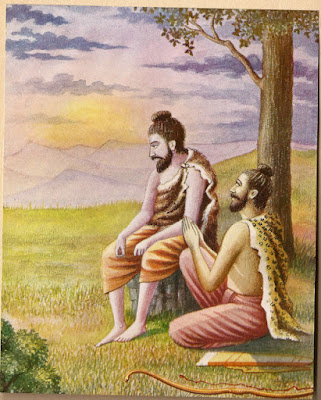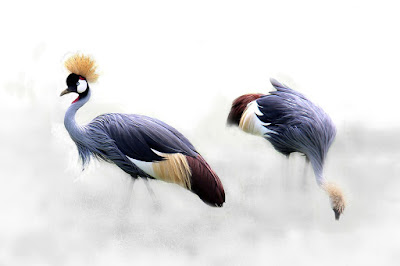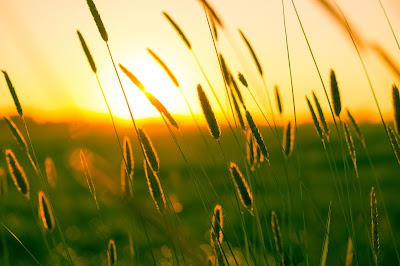Reading Notes: Ramayana, Part A - Lakshmana
Lakshmana Consoling Rama
By Chitra Ramayana by Ramachandra Madhwa Mahishi, Illustrated by Balasaheb Pandit Pant Pratinidhi, 1916 [Public domain], via WikiMedia Commons
There are many times in the stories that Lakshmana is overlooked like when it is Rama that Vishvamitra needs to protect him from the rakshasas Muricha and Subahu or when Dasharatha chooses Rama to be the Yuvarajah (heir apparent). When he isn't overlooked entirely Lakshmana is usually a supporting figure while Rama performs great feats or embarks on a new quest. For example when Rama wins Sita's hand in marriage by breaking Shiva's bow, Lakshmana is there but doesn't do much besides try to defend Rama to Parashurama.
Though both Rama and Lakshmana seem destined to live great lives Rama's destiny will always be greater than Lakshmana's, but Lakshmana has nothing but love and respect for his brother. In fact he insists on following Rama into exile and won't agree to stay behind even when Rama tries to persuade him to do so. As part of Kaikeyi's boon she demanded that Rama spend his time in exile wearing a rough robe made of bark, and while Sita refuses to wear such a garment Lakshmana in solidarity with his brother sheds his luxurious royal wardrobe for the rough and uncomfortable clothes of a hermit.
Throughout each episode of Part A of the Ramayana Lakshmana shows deep devotion to his brother even to the point of leaving his family behind and putting himself at risk to accompany Rama into exile, and he does all this this even though he has plenty of reasons to be jealous of Rama.
"Rama: Avatar of Vishnu" from Indian Myth and Legend by Donald A. Mackenzie. Web source.
"Vishvamitra" from Myths of the Hindus and Buddhists by Sister Nivedita. Web source.
"Thataka" from Indian Myth and Legend by Donald A. Mackenzie. Web source.
"Ahalya" from Valmiki's Ramayana translated by Ralph T.H. Griffith. Web source.
"Sita" from The Divine Archer by F.J. Gould. Web source.
"Rama Wins Sita" from Indian Myth and Legend by Donald A. Mackenzie and Ramayana, The Epic of Rama, Prince of India, condensed into English verse by Romesh Dutt. Web source.
"Parashurama" from The Devine Archer by F.J. Gould. Web source.
"Rama and Sita's Wedding" from Ramayana, The Epic of Rama, Prince of India, condensed into English verse by Romesh Dutt. Web source.
"Rama Goes into Exile" from Indian Myth and Legend by Donald A. Mackenzie. Web source.
"Crossing the River" from Myths of the Hindus and Buddhists by Sister Nivedita. Web source.
"Dasharatha's Death" from Indian Myth and Legend by Donald A. Mackenzie and Ramayana, The Epic of Rama, Prince of India, condensed into English verse by Romesh Dutt and Indian Myth and Legend by Donald A. Mackenzie. Web source.




Comments
Post a Comment